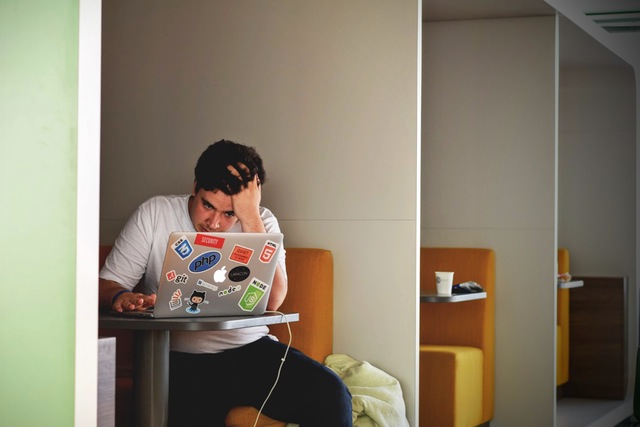The benefits of working from home are obvious to anyone who takes a moment to think about it. The flexibility of working in your own space and on your own device is something that most employees are going to wish they had. Not to mention all the money you’re spending by skipping the costs of traveling to work. It’s not all fun and games, though. Working from home can negatively impact your job, your health, and your home-life if you’re not careful. Here’s how you stop that from happening.
Use that time right
When you first start working from home, you may find some productivity and efficiency issues. Some people find it hard to cross the boundary from home-life to work-life. A great way to make sure you’re put in the right frame of mind is to take the morning to yourself and get ready. Have a proper breakfast, wash up and get properly dressed. The morning routine is perfect for getting you active in the morning and ready to work. Time management when working from home is important, too. Track your productivity and see what tasks you get done during the workday so you can identify whether you’re having any productivity issues. Some of the points below are going to help you work out those issues.
Tech problems
If there’s one thing that can seriously cut into those supposedly productive hours of the day, it’s having issues with your ability to access work through the computer. It’s a good idea to have access to more than one device that you can use to connect to work. The same goes for the internet. Whether you’re a freelancer or an employee, you don’t want your internet to be a source of your headaches. Especially if you have to explain it bosses and clients and end up looking unprofessional. You should have access to a Wi-Fi hotspot or even buy a device of your own that can create one. They’re less cost-effective than your regular net connection, but they’re likely not as expensive as having no access to the net for a day.
Mind your eyes
Most work from home is done at a computer. If you’re not yet aware of some of the risks of spending all day in front of a screen, you’re about to get very familiar with them. The contrast of a screen against an otherwise unlit room is the perfect recipe for eyestrain and migraines. These can stay with you long after you’re done with work, effectively making the rest of your day a little worse. It’s all about brightening up the office. Whatever natural light you get inside, maximize it using things like translucent curtains instead of heavier ones. Consider adding a desk lamp next to your monitor, too, so it always has light surrounding it, offering less of a contrast that will hurt your eyes.
Comfort is a priority
Supporting your body is even more important. Without the right kind of support, you’re going to be suffering from repetitive strain injury and back pain that won’t just stay with you for the rest of the day, but could be with you for the rest of your life. Having proper home office furniture from places like Office Chairs Only is a must. First, you need an ergonomic chair that supports your back so that all your weight isn’t being supported by the base of where you sit. Make sure the chair is at the correct height so that you’re at eye-level with the top of the screen so you’re not constantly craning your neck, too. Most important, take a two-to-five minute break every hour to stretch your legs and walk around.
Maintain your balance
It’s not just your physical health that might be at risk but your mental and emotional health, too. If you’re not able to maintain a proper boundary between work and life, you’re going to be a lot more prone to stress and feeling anxiety at home. You need to know when to switch off. So, start creating some rules. Make sure you absolutely have set hours of the day that are designated work hours. Outside of those, it’s time to shutdown the computer and forget about the job for the rest of the day. Finishing the work-day properly is just as vital as starting it properly.
Eliminate distractions
One of the problems that can blur that work-life balance is finding that you’re not able to fully concentrate on your work. The home can be a comfortable place to work, but it can also be distracting. First, make sure your family and anyone else who lives with you knows your rules. They have to respect your workspace and not come bothering you when you’re in the middle of the working day. They wouldn’t come talking to you at your office in a proper work environment, so they have to respect that rule here. Secondly, make sure there aren’t any distracting materials around your work space itself. This means not setting up the office anywhere there’s a TV or video games. Set and follow strict rules about how you use telecommunications, too. Phone calls need to be logged and timed to be kept brief and social media should exclusively be used for business during work hours.
Social exclusion
The cohesion and bonding offered at a workplace is important. Being physically isolated is likely to make you feel less significant in your role and can impact how much you enjoy your job. So, take professional opportunities to mingle and shake hands. If you work for a business, then be a part of their company get-togethers and strategic meetings. If you’re self-employed, then join networking groups and events and meet potential partners and clients face-to-face often.
Those who work from home tend to be more engaged and happier with their job. But there are others who burn out because they haven’t prepared for how it can affect their health, physically and mentally. Don’t let that be you.



No comments yet.